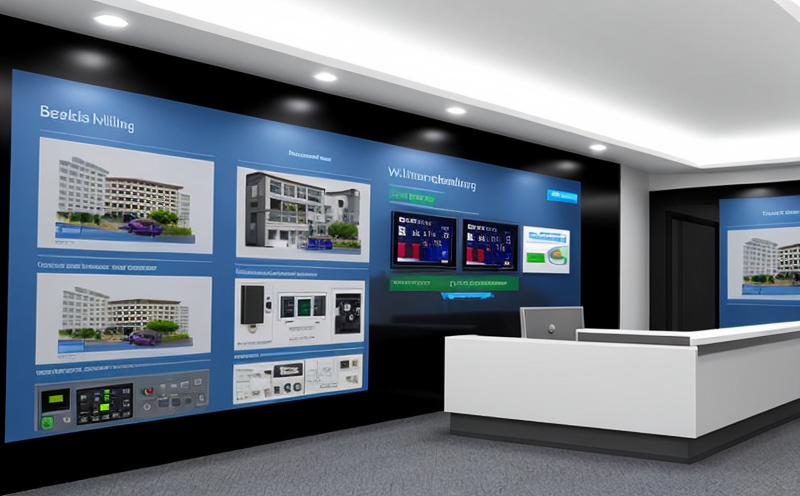IEC 62056 Smart Metering Data Exchange
The IEC (International Electrotechnical Commission) Standard 62056 specifies communication protocols and data formats for smart metering systems. This standard ensures interoperability between different manufacturers’ devices, enabling seamless data exchange across various utility networks.
IEC 62056 is critical for the development of modern smart infrastructure as it supports real-time monitoring of energy consumption, facilitates accurate billing, and enhances grid management through advanced analytics. The standard encompasses both low-level communication protocols (e.g., Meter Data Management, Data Transfer Protocol) and higher-level application services that enable secure and efficient data exchange.
Given the complexity of smart metering systems, compliance with IEC 62056 is essential for manufacturers aiming to ensure their products are compatible with global markets. This standard applies to a wide range of devices including
- Smart meters
- Data concentrators
- Utility networks
The testing process involves rigorous validation of the following key aspects:
- Communication protocols and data formats compliance with IEC 62056
- Data integrity and security
- Interoperability across different brands and models
- Performance under varying environmental conditions
- Scalability for future expansion
The testing protocol includes both lab-based simulations and field trials to ensure real-world reliability. Specimen preparation involves deploying the devices in a controlled environment that simulates actual usage scenarios.
The instrumentation used includes network analyzers, security testers, and data management systems. Reporting is comprehensive, detailing compliance with IEC standards, performance metrics, and any areas for improvement. This ensures manufacturers can make informed decisions to enhance product quality and market competitiveness.
Why Choose This Test
Selecting the IEC 62056 Smart Metering Data Exchange testing service offers several advantages:
- Global Market Access: Compliance with IEC standards opens doors to international markets.
- Enhanced Product Quality: Rigorous testing ensures high-quality, reliable products.
- Cost Efficiency: Early identification of issues through comprehensive testing reduces rework and redesign costs.
- Competitive Edge: Ensures that your product is at the forefront of smart metering technology.
The service not only meets current standards but also prepares manufacturers for future advancements in smart infrastructure. This proactive approach ensures long-term success in a rapidly evolving industry.
Our team of experts uses cutting-edge equipment and follows international best practices to deliver accurate, reliable testing results. This allows you to make informed decisions confidently.
Environmental and Sustainability Contributions
The IEC 62056 Smart Metering Data Exchange plays a pivotal role in driving environmental sustainability by enabling more efficient energy consumption management. By providing real-time data on energy usage, utilities can optimize grid operations, reduce waste, and promote renewable energy integration.
Through the use of smart metering systems compliant with IEC 62056 standards:
- Energy Conservation: Consumers are better informed about their consumption patterns leading to reduced wastage.
- Renewable Energy Integration: Enhanced grid management supports higher adoption rates of solar and wind energy sources.
- Emissions Reduction: Efficient use of resources translates into lower carbon footprints for both consumers and producers.
The testing service ensures that the devices used in these systems meet the highest standards, thereby contributing significantly to environmental sustainability. Compliance with IEC 62056 helps in achieving these goals by ensuring interoperability and reliability across all components of smart infrastructure.
Use Cases and Application Examples
| Use Case | Description |
|---|---|
| Smart Grid Management | Involves real-time monitoring of energy consumption to optimize grid operations. |
| Advanced Billing Systems | Precise and accurate billing based on actual usage data. |
| Renewable Energy Monitoring | Tracking production and consumption of renewable sources for efficient integration into the grid. |
| Energy Audits | Conducting detailed audits to identify areas of inefficiency and potential improvements. |
| Demand Response Programs | Enabling utilities to manage demand during peak times by adjusting prices or supply. |
| Energy Conservation Campaigns | Supporting campaigns aimed at reducing energy consumption among consumers. |
| Smart City Initiatives | Incorporating smart meters into broader city management systems for better resource allocation. |
The application of IEC 62056 in these use cases is critical as it ensures seamless data exchange and interoperability, which are fundamental to the success of any smart infrastructure project. The testing service we offer is designed to support these applications by providing comprehensive validation across all necessary parameters.





